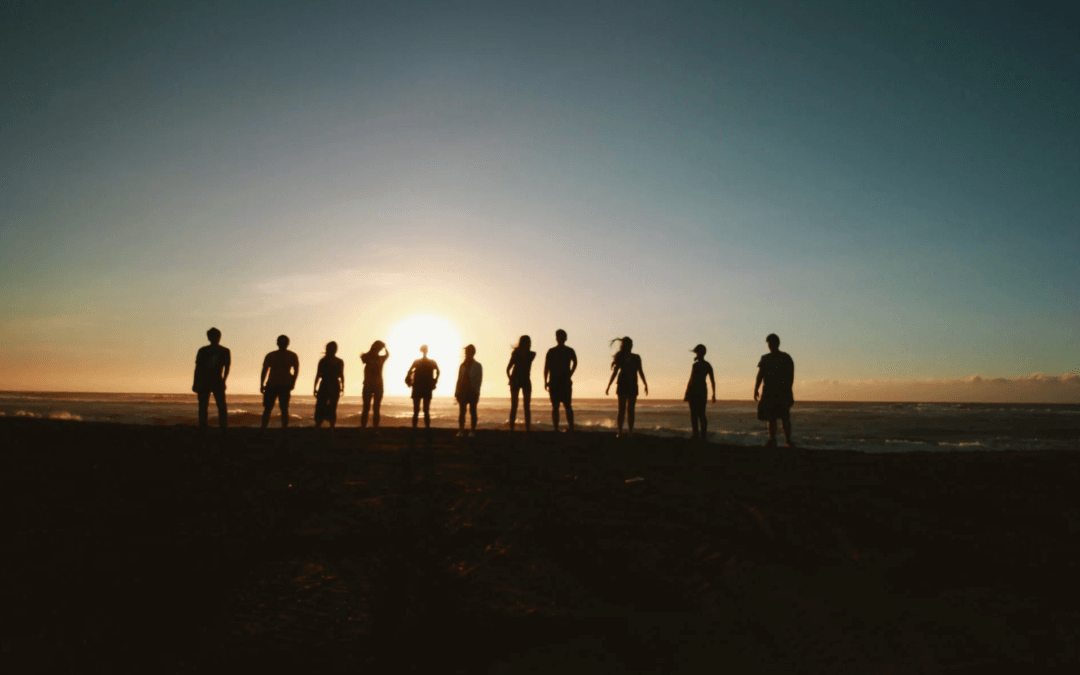I lead writing groups and I participate in writing groups. They are essential to supporting life as a writer, and they are a powerful political act.
A member of one of my writing groups spoke to this beautifully when she said,
“Being in a writing group is an exercise in democracy…just getting to listen to one another’s minds and stories is deeply radical. It’s also deeply radical to try and figure out what you think. That’s what you do when you free write and share it with people — it’s a very raw way of getting to that.”
What brings me, and my clients, to writing (and sharing writing) regularly in a group with other people is a need to be heard. Writing is a way to access the voice inside us, but we don’t actually know what that voice really sounds like or the impact it can have until we read our writing out loud to other people.
“You can’t see yourself by yourself,” I frequently say. You need other people in order to see yourself more clearly. You also can’t see others by yourself. You actually need other people in order to see other people more clearly. In other words, we need each other to see everything more clearly.
Democracy at heart is a system designed to help us see, listen to, represent, and account for the voices of ordinary people. Coming together in voice and vision to move the arc of humanity onward and upward is the essential mission of a democracy (in theory anyway). But history and our current political landscape shows that maintaining and consolidating power is done by shutting down voices and dividing them into heated arguments of us and them or right and wrong so no one can hear themselves or anyone one else. And while we are busy arguing, the autocrat moves into the White House, steals the narrative, and cuts it down into one small sentence we’re all supposed to live with.
One of my former writing group leaders said that finding your voice in writing happens “the moment when the truth leaps out of you — when you assume the authority to write. You don’t wait for someone’s permission. You tap into the source deep inside of you, the power hidden underneath the politeness and deference and fear of being seen or causing trouble or being different. Suddenly, out of an endless flow of words will leap the core of the idea: the passionate, rich, loud, voice.”
I am interested in this idea that the passionate, rich, loud voice is “the core of the idea.”
When a group of people write and then read their raw, unedited, unpolished, fresh-on-the-page words to one another, common themes and common threads emerge. You start to see how each person gives voice to the “core idea” of what it means to be human.
The core idea of what it means to be human is not one thing, it’s not one story, one point of view, one narrative, one little sentence, or one experience. It’s a shared ground, a communal territory that only finds its name in the conglomeration of voices attempting to name it.
The core idea of what it means to be human is not the same for everyone, but the desire to name it and express it is. The ability and freedom to actually do that is the foundation of a democracy.
A common theme that shows up when people commit to writing a book, to joining a writing group, or attending a writing retreat is the idea that this desire to write or express what it means to be human is a luxury, an indulgence, and not something we get to prioritize with time, energy, or money in the same way we prioritize other more “productive” things in our lives. This idea is planted, nurtured, and cultivated by the dominant, singular, narrow narrative about what it means to be a writer and what it means to be human.
Writer Barry Lopez once said, “Sometimes a person needs a story more than food to stay alive.”
Developing a deeper relationship to your own voice, your own story through writing, and sharing it with others is not a luxury or an indulgence. It is an act of citizenship. It is an exercise in democracy.
It is deeply radical to try to figure out what you think beyond what you’ve been told. It is a powerful act to question, change, and expand the sentences you have been given and to write your story into something bigger than yourself. It is deeply radical to share it, to keep magnifying the narrative(s) we live with, to know we have the power to change them, and to listen deeply to the story of another human being.
Participating in a writing group creates a foundation for you to see, listen to, represent, and account for your voice and the voices of the ordinary people with whom you share common human ground, common living territory.
Writing groups enable us to come together in voice and vision to move the arc of humanity inward, outward, onward and upward, or at least toward a real, conversation that includes listening as well as speaking so the core of the human idea might leap out and clearly show us the passionate, rich, loud truth that we are all in this together.

